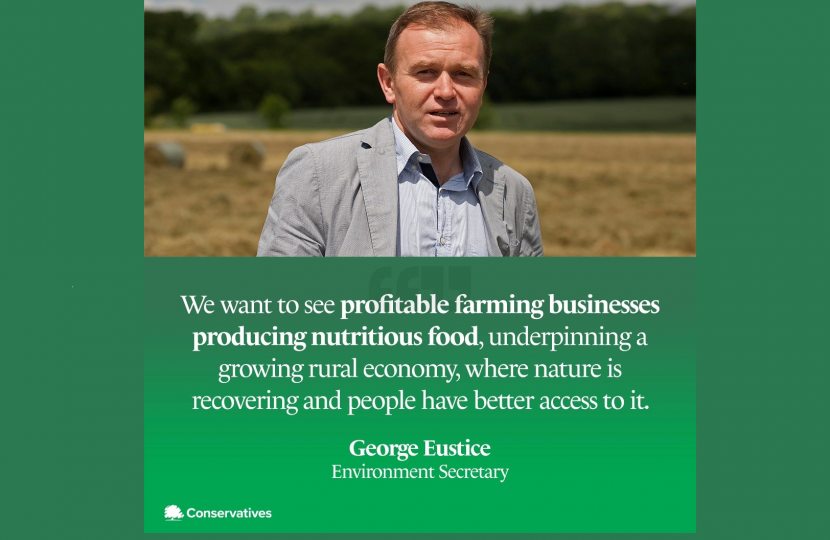
This week, the Government unveiled the next stages of its plan to reward farmers and landowners for actions which benefit the environment, supporting sustainable food production alongside vital nature recovery.
Two new environmental land management schemes will play an essential role in halting the decline in species by 2030, bringing up to 60% of England’s agricultural soil under sustainable management by 2030, and restoring up to 300,000 hectares of wildlife habitat by 2042.
The schemes are designed to provide farmers with a range of options from which they can choose the best for their business now we have left the EU.
The Local Nature Recovery scheme will pay farmers for locally-targeted actions which make space for nature in the farmed landscape and countryside such as creating wildlife habitat, planting trees or restoring peat and wetland areas. The Landscape Recovery scheme will support more radical changes to land-use change and habitat restoration such as establishing new nature reserves, restoring floodplains, or creating woodland and wetlands.
Taken together with the previously announced Sustainable Farming Incentive which supports sustainable farming practices, they are designed to provide farmers and land owners with a broad range of voluntary options from which they can choose the best for their business. The reforms are the biggest changes to farming and land management in 50 years with more than 3,000 farmers already testing the new schemes.
MP for North East Bedfordshire, Richard Fuller, commented:
Supporting farmers to ensure we maintain and expand our domestic food production remains a key objective and is now joined with encouraging their support to make space for nature in the farmed landscape.
We need to get this transition from production subsidies to “public money for public goods” right for the long term, so throughout 2022 I will be listening closely to local farmers to learn how progress is going and where changes need to be made.

